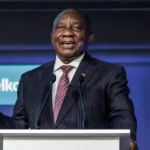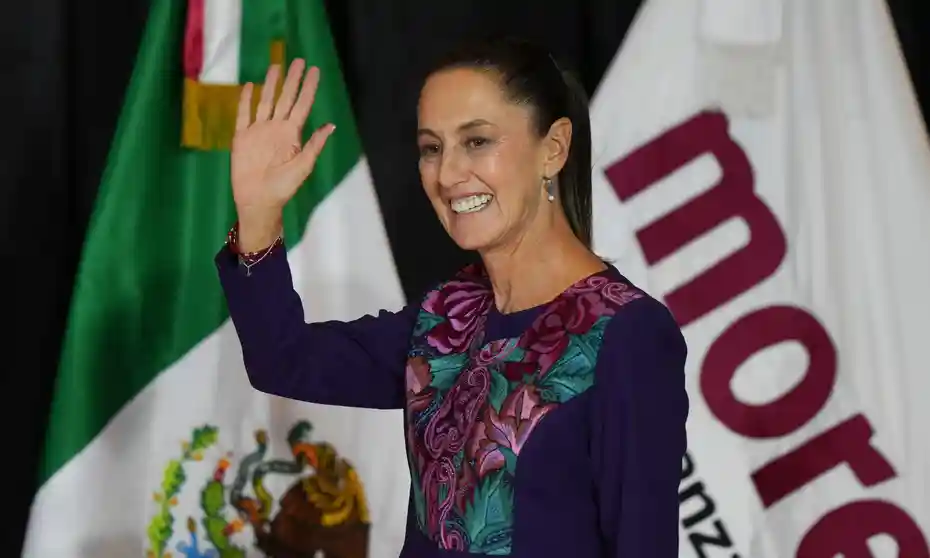
Claudia Sheinbaum has won a landslide victory to become Mexico’s first female president, inheriting the project of her mentor and outgoing leader,Andres Manual Lopez, whose popularity among the poor helped drive her triumph.
Sheinbaum, a climate scientist and former mayor of Mexico City, won the presidency with between 58.3% and 60.7% of the vote, according to a rapid sample count by Mexico’s electoral authority.
The ruling coalition led by Sheinbaum’s Morena party was also on track for a possible two-thirds super-majority in both houses of Congress, which would allow the coalition to pass constitutional reforms without opposition support. The big win for Sheinbaum was consistent with polls throughout the campaign.
The opposition candidate Xóchitl Gálvez conceded defeat after preliminary results showed her taking between 26.6% and 28.6% of the vote. Jorge Álvarez Máynez, the candidate of the centrist Movimiento Ciudadano, came in third with at least 9.9%.
“For the first time in the 200 years of the republic I will become the first woman president of Mexico,” Sheinbaum told supporters to loud cheers of “president, president”. “We imagine a plural, diverse and democratic Mexico. Our duty is and will always be to look after each and every Mexican, without distinction.”
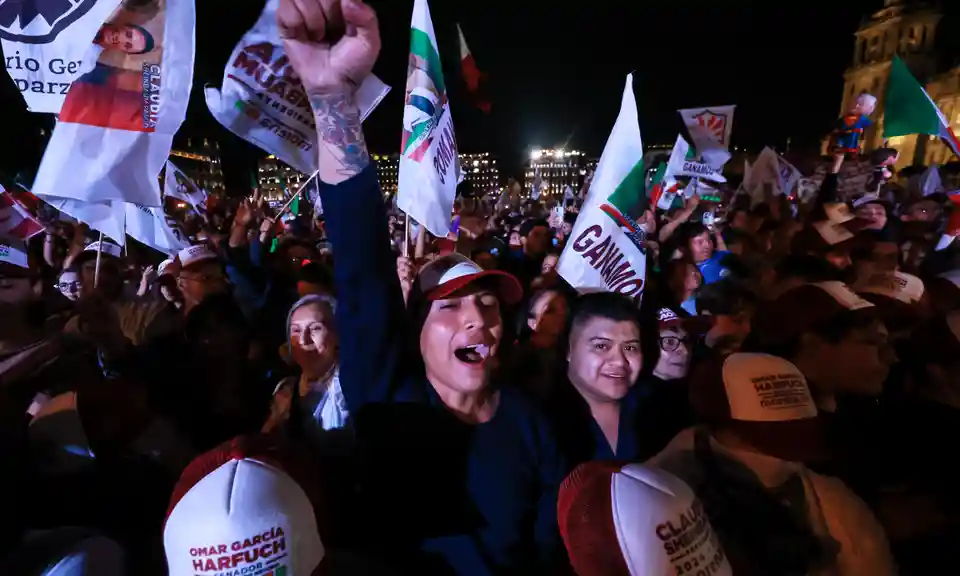
Victory for Sheinbaum is a major step for Mexico, a country known for its macho culture and home to the world’s second biggest Roman Catholic population, which for years pushed more traditional values and roles for women. She will also be the first person from a Jewish background to lead the country.
Sheinbaum is also the first woman to win a general election in the US, Mexico or Canada.
Her victory exceeds the 54.71% achieved by her populist mentor López Obrador in 2018. He wrote on X: “I congratulate Claudia Sheinbaum, who triumphed by a wide margin. She’ll be the first female president of Mexico in 200 years … And she may also be the president with most votes in all the history of our country.”
The rapid sample count was delayed several times with no explanation by the electoral commission, leading Gálvez to sow doubt about its veracity, despite the huge gap in exit polls. “The votes are there. We must not let them hide them,” Galvez Wrote on x on Sunday evening.
Aside from the presidency, more than 20,000 posts were up for grabs in Mexico’s biggest election. The poll has also been the most violent in modern history, with more than 30 candidates killed and hundreds more dropping out as criminal groups vied to install friendly leaders.
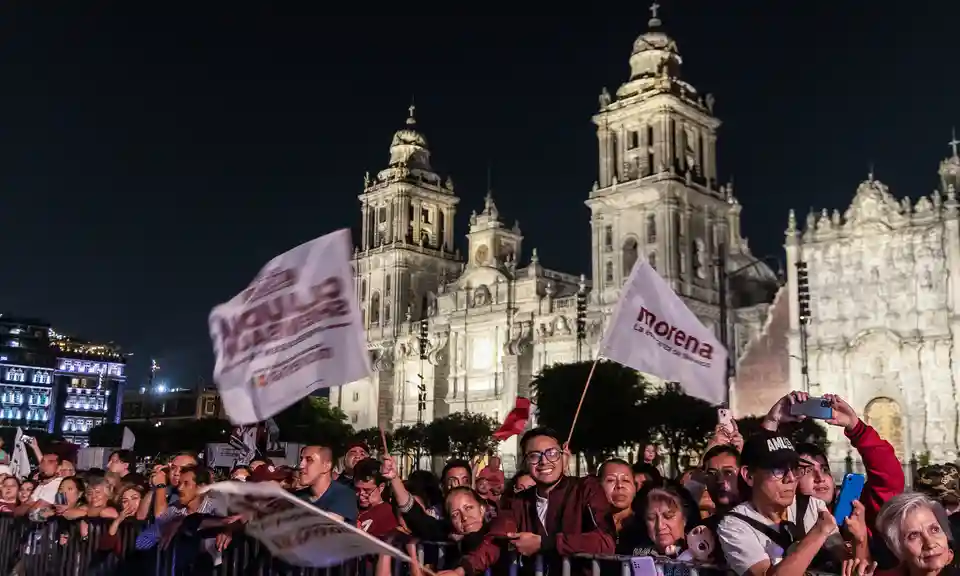
On Sunday, two people were killed at polling stations in the state of Puebla.
Sheinbaum capitalised on the support for López Obrador, who founded Morena in 2014 and first broke the traditional parties’ grip on power to become president with his landslide win in 2018.
She vowed to continue his policies, including cash transfers to elderly people and single mothers, and flagship infrastructure projects in historically poor regions, but also a massively expanded role for the military in areas typically reserved for civil society, such as domestic security.
About 100 million people were registered to vote on Sunday and huge lines formed at polling stations in the sweltering heat.
At a polling station in Mexico City between the wealthy neighbourhood of Roma and working-class Doctores, voters were split on the virtues of Morena, leaning out of the queue to answer discreetly.
Patricia Castro, from the state of Sinaloa, shrugged at the mention of Sheinbaum and Gálvez, but not of López Obrador. “He’s the worst,” she said. “The worst.”
Castro was voting for the conservative PAN party, part of the opposition coalition, saying: “The PAN did more [when it was in power].”
Further back in the line, Caro Guzmán, a middle-aged cleaner, emphasised the importance of Morena’s social programmes. “With Morena my sister got money every month to look after our mother,” said Guzmán. “It really helped us when she was sick.”
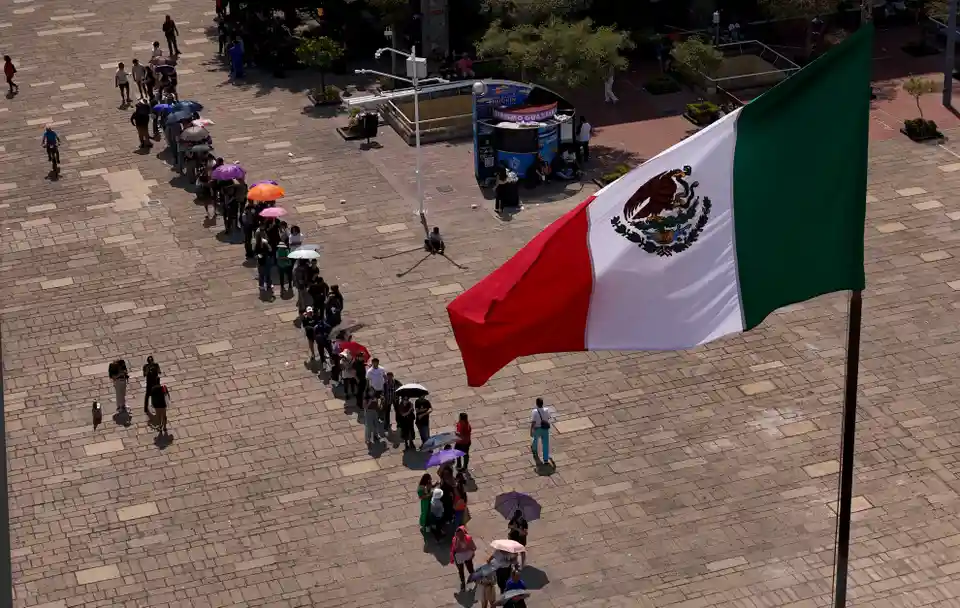
Guzmán added that she trusted Sheinbaum to keep Morena’s social programmes.
Sam Castillo, a 25-year-old dancer, said he hoped Sheinbaum could be stronger on foreign relations than López Obrador had been.
As he waited to vote at a polling station in the Florida district in the south of Mexico City, he said he felt better with the leftist Morena in power as part of the LGBTQ+ community. “What we have seen with gender legislation, with marriage equality, for me it has to do with party,” Castillo said.
The new president will face tense negotiations with the White House over the huge flows of US-bound migrants crossing Mexico and security cooperation over drug trafficking at a time when the US fentanyl epidemic rages.
Mexican officials expect these negotiations to be more difficult if the US presidency is won by Donald Trump in November. Trump, the first US president to be convicted of a crime, has vowed to impose 100% tariffs on Chinese cars made in Mexico and said he would mobilise special forces to fight the cartels.


